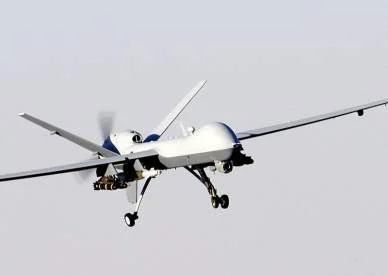A computer virus has reportedly infected Predator and Reaper drones deployed in Afghanistan and other war zones.
According to Danger Room’s Noah Shachtman, the virus – which was first detected two weeks ago – logs every keystroke as U.S.-based pilots remotely fly combat and surveillance missions overseas.

Unsurprisingly, military sources claim the virus hasn’t managed to compromise classified information. As such, the drones have yet to be grounded.
However, one source did acknowledge that the virus has successfully resisted multiple efforts to remove it from computer networks at the Creech Air Force Base in Nevada.
“We keep wiping it off, and it keeps coming back,” the source told Shachtman. “We think it’s benign. But we just don’t know… It’s getting a lot of attention. But no one’s panicking. Yet.”
Indeed, military network security specialists say the are unsure whether the virus and its “keylogger” payload were injected intentionally or by accident, with some speculating it may be a common piece of malware that “just happened” to make its way into sensitive networks.
Perhaps most worryingly, the specialists are unable to determine how far the virus has spread – but they are confident the malware has affected both classified and unclassified systems at Creech.
“That raises the possibility, at least, that secret data may have been captured by the keylogger, and then transmitted over the public Internet to someone outside the military chain of command,” Shachtman explained.
“[Remember], drone systems are known to have security flaws. Many Reapers and Predators don’t encrypt the video they transmit to American troops on the ground, and drone footage [was found in 2009] on the laptops of Iraqi insurgents. A $26 piece of software allowed the militants to capture the video.”
For its part, the Air Force refused to directly address reports of a rampaging drone virus.
“We generally do not discuss specific vulnerabilities, threats, or responses to our computer networks, since that helps people looking to exploit or attack our systems to refine their approach,” said Lt. Col. Tadd Sholtis, a spokesman for Air Combat Command, which oversees the drones and all other Air Force tactical aircraft.
“We invest a lot in protecting and monitoring our systems to counter threats and ensure security, which includes a comprehensive response to viruses, worms, and other malware we discover.”






